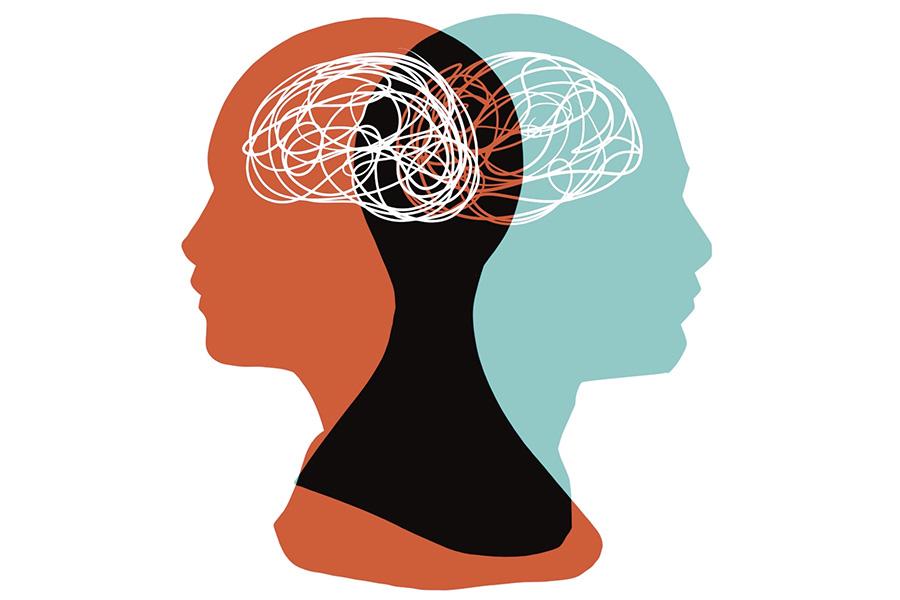Explore Comprehensive Mental Health Services for Every Age Group
Explore Comprehensive Mental Health Services for Every Age Group
Blog Article
Comprehensive Inpatient Mental Health Solutions for Effective Treatment
Inpatient mental wellness services represent a crucial element of the medical care system, offering a organized and intensive environment for individuals experiencing extreme psychological distress. These services use a multidisciplinary approach, incorporating various evidence-based therapies to attend to the complex needs of individuals. Nonetheless, the effectiveness of such comprehensive care expands past immediate stabilization; it likewise incorporates the change to outpatient support, an important phase frequently ignored. Checking out the subtleties of this continuum exposes considerable ramifications for both private healing and wider mental health and wellness end results. What variables absolutely affect this change, and exactly how can we improve its efficiency?
Comprehending Inpatient Mental Wellness Providers
Inpatient psychological wellness services give critical assistance for individuals experiencing severe emotional distress that can not be taken care of efficiently in an outpatient setting. These solutions are created to use an intensive level of care in an organized atmosphere, typically within a healthcare facility or specialized facility. Clients admitted to inpatient programs commonly show acute signs, such as suicidal ideation, serious depression, or psychosis, requiring round-the-clock monitoring and treatment.
The admission process normally involves a detailed assessment by psychological health and wellness professionals, who review the individual's psychological state, history, and instant demands. Once confessed, clients involve in a variety of restorative methods tailored to their particular needs, including medicine monitoring, individual treatment, and team sessions. This holistic technique intends to stabilize the client's problem, promote security, and foster coping abilities.
Inpatient psychological health solutions not just address prompt health problems but also work as a bridge to recurring treatment. By providing a controlled atmosphere, these solutions help with the advancement of treatment plans that can be proceeded in outpatient setups, hence guaranteeing a continuum of care and improving long-lasting results for individuals with complicated psychological wellness demands.
Trick Elements of Effective Treatment
Efficient therapy in inpatient mental health and wellness solutions makes up a number of crucial elements that promote healing and stabilization. A comprehensive assessment is essential to recognize the person's certain requirements and obstacles. This analysis educates the advancement of a tailored treatment strategy, which offers as a roadmap for intervention.
Another essential part is the multidisciplinary group method. Collaboration among psychoanalysts, psycho therapists, nurses, and social employees makes sure that various perspectives contribute to the patient's care, enhancing the effectiveness of therapy. Evidence-based restorative modalities, such as cognitive-behavioral treatment (CBT) and dialectical habits therapy (DBT), are additionally important, offering organized methods that attend to maladaptive thought patterns and behavior problems.

Last but not least, an emphasis on aftercare planning is essential to ensure a smooth transition to outpatient solutions, lessening the risk of regression and advertising lasting wellness. These cumulative elements create a reliable treatment structure within inpatient mental health solutions.
Advantages of Comprehensive Treatment

Detailed treatment in inpatient mental health and wellness solutions provides numerous benefits that dramatically improve person outcomes. One of the main benefits is the holistic method to therapy, dealing with not only the mental signs and symptoms but also the physical, social, and emotional requirements of individuals. This comprehensive evaluation allows for tailored treatments that advertise general health.
An additional advantage is the assimilation of multidisciplinary groups, which fosters partnership among medical care professionals. This collaborative environment makes sure that individuals obtain worked with treatment, minimizing the danger of fragmented therapy and enhancing communication among caregivers. Additionally, extensive care promotes connection of solutions, enabling smooth shifts from inpatient to outpatient settings, which is important for long-lasting recovery.

Last but not least, the organized setting of detailed inpatient treatment supplies a risk-free area for patients to take part in healing tasks, assisting them establish coping techniques and durability. Collectively, these advantages add to a lot more efficient treatment and improved quality of life for people experiencing psychological health and wellness crises.
Evidence-Based Therapeutic Strategies
In the world of psychological wellness therapy, evidence-based restorative approaches play an essential role in ensuring that people get efficient and scientifically sustained interventions. These strategies incorporate the finest available study with scientific know-how and this hyperlink individual values, cultivating a tailored therapy experience that deals with specific demands.
Cognitive Behavior Modification (CBT) is among the most commonly identified evidence-based methods, concentrating on recognizing and altering adverse idea patterns and behaviors. This organized strategy has demonstrated effectiveness in dealing with problems such as anxiety, stress and anxiety, and PTSD. Likewise, Dialectical Behavior Modification (DBT) is particularly efficient for people with borderline individuality problem, emphasizing the development of emotional policy and interpersonal performance skills.
In addition, drug monitoring is frequently an important element of evidence-based treatment, as psychotropic medications can relieve signs and boost total performance. Collective care models, which involve multidisciplinary groups, better boost the effectiveness of inpatient services by making sure thorough evaluations and continual surveillance.
Eventually, the combination of evidence-based therapeutic strategies not just promotes positive professional end results however likewise equips individuals, promoting a feeling of firm and resilience in their psychological health and wellness journeys.
Transitioning to Outpatient Assistance
The shift from inpatient mental health and wellness solutions to outpatient assistance marks a critical phase in a patient's recuperation journey. This period needs careful preparation and sychronisation to ensure connection of treatment and to alleviate the dangers of relapse or dilemma. Effective discharge preparation should start early in the inpatient keep, including a multidisciplinary group that consists of psychoanalysts, psycho therapists, registered nurses, and social workers.
Crucial element of an effective transition consist of the advancement of a comprehensive aftercare strategy tailored to the person's particular demands. This plan must outline follow-up visits, drug administration, and therapeutic interventions, as well as determine area resources and support teams that can help with continuous recuperation.
Furthermore, person and household education is important throughout this stage. Recognizing the signs of prospective obstacles and the importance of adhering to treatment can equip people and their support group.
Routine follow-up and review of the outpatient plan are vital to resolve evolving challenges. By fostering a collective connection in between outpatient and inpatient companies, the probability of continual healing boosts, eventually improving the individual's top quality of life and lowering the threat pop over to these guys of readmission.

Final Thought
In recap, thorough inpatient psychological health services provide a necessary structure for attending to serious mental distress with a multidisciplinary technique. Eventually, such detailed treatment i was reading this is crucial for lasting psychological health and wellness and health.
The admission process normally entails a thorough evaluation by mental health and wellness professionals, that examine the person's psychological state, background, and immediate needs.Effective therapy in inpatient psychological health and wellness services comprises several vital parts that promote healing and stabilization.Comprehensive treatment in inpatient mental health solutions uses many benefits that significantly boost individual outcomes.The change from inpatient psychological health services to outpatient support notes a vital phase in a person's healing journey.In recap, comprehensive inpatient psychological health and wellness solutions use a vital structure for attending to severe mental distress through a multidisciplinary strategy.
Report this page